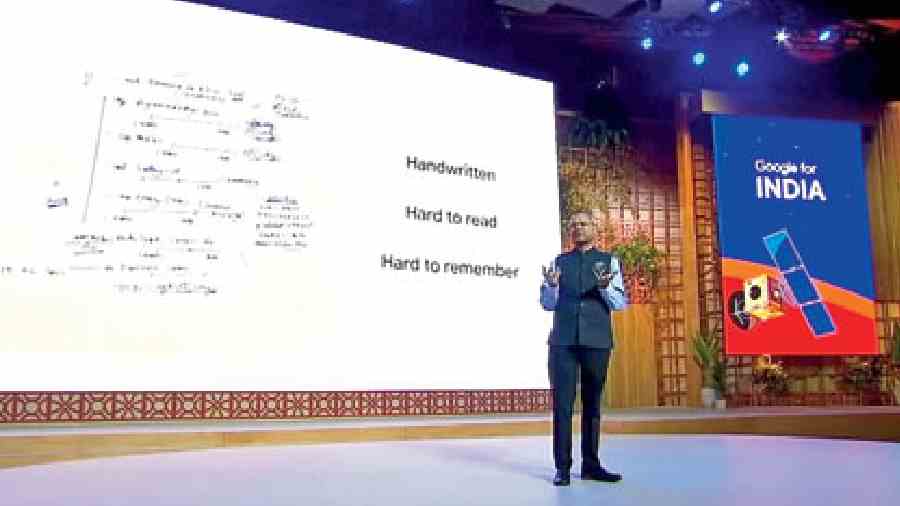It’s no secret that doctors have illegible handwriting. Google will soon take care of it. Google is working on an AI model that can tackle even the worst of handwriting, the company said during its Google for India conference.
“Prescriptions are handwritten, hard to read and hard to remember. Pharmacists are magicians. It is a complex process. We have come up with AI capabilities to take care of prescriptions,” said Manish Gupta, director (research), Google India.
To explain the process, a video was shown of a pharmacist who said they usually read some of the alphabets in medicine names (to decode the wavy structure) that are prescribed and then read the diagnosis, besides the accompanying list of medicines to come up with all the names. In other words, pharmacists don’t use a scientific process. Google is trying to come up with a method to make sense of prescriptions.
“It is still at research stage; it’s a complex problem. There are times when a doctor’s handwriting looks like a few waves. What we have seen so far are significant improvements in accuracy level relative to what we started with a year ago. We are still in the middle of improving the capability and then talking to partners about what more can be done,” Gupta said.
All we know about the process is that Google is using an AI and machine learning model. This will act as an “assistive technology for digitising handwritten medical documents by augmenting the humans in the loop such as pharmacists”, however no decision will be made solely based on the output provided by this technology.
If the AI model is a success, there is a chance that the technology will get implemented in other markets where handwritten prescriptions are popular.
“Anything we develop here I would imagine will have applicability not just to India but many parts of the world. A lot of work is driven by India first but not India only. There are projects that if tackled in India, can be taken to many other places,” Gupta said.
Besides making sense of prescriptions, Google is working on ways to capture diverse Indian dialects for building better AI language models. Project Vaani is being done in collaboration with the Indian Institute of Science, Bangalore, to collect and transcribe open source speech data from across all of India’s 773 districts.











